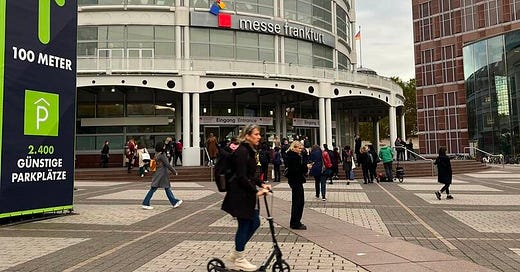What Actually Happens at Book Fairs
The not-so-glamorous (and actually quite boring) truth about book fairs
Hi lovelies,
I am back from the Frankfurt Book Fair and have (more or less) caught up on my inbox so, as threatened, I thought I'd talk about book fairs! I think there are a lot of misconceptions abou…
Keep reading with a 7-day free trial
Subscribe to Portobello Literary to keep reading this post and get 7 days of free access to the full post archives.




